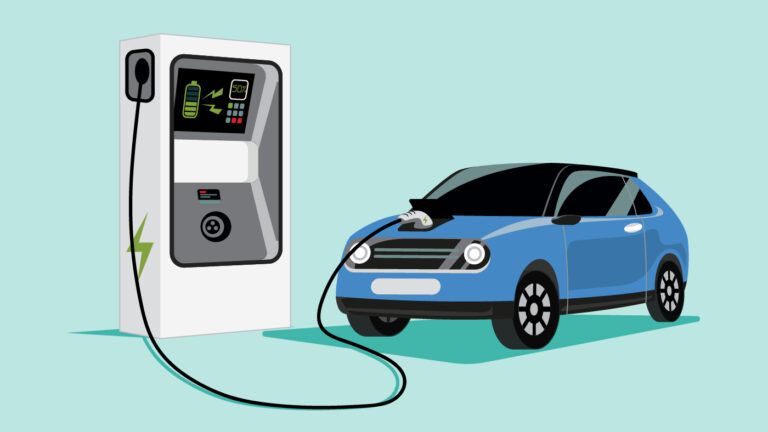Financial institution help accelerate E-mobility.
Kenya has more than 1000 partially electric vehicles, with dealers preferring this mobility option because they are environmentally friendly, reduce noise pollution, have long-lasting lithium-ion batteries, reduce energy dependence, and are cost efficient considering the high fuel cost.


Kenya has more than 1000 partially electric vehicles, with dealers preferring this mobility option because they are environmentally friendly, reduce noise pollution, have long-lasting lithium-ion batteries, reduce energy dependence, and are cost efficient considering the high fuel cost.
NCBA Group has launched a shilling 2 billion electric vehicle financing deal for its customers as part of its green finance strategy. The five-year agreement will see customers enjoy asset financing of up to 80 percent of the total cost of any personal or public service vehicle they identify.
In addition, NCBA will give a 10 percent interest rate on reducing the balance offer for electric vehicle loan applications received within the first 90 days.
According to NCBA Group director, Asset Finance and Business Solutions, Lennox Mugambi says transforming the transport sector into low carbon, efficient and reliable system that will drive social and economic growth is at the heart of what we believe. Mugambi noted that in the past few months, they have received growing interest and requests from customers who are keen to purchase electric vehicles.
“We see this investment as an opportunity to support the government establish a clean, efficient, and safe transport system that will safeguard an eco-friendly future,” Lennox Mugambi.
Electric vehicles are not only lighter but have faster acceleration, and the cost of charging them in Kenya starts from as low as Sh1000.
Currently, electric vehicles travel on average 313km on a full charge, and it takes up to 4 hours for the Battery to be fully charged based on the type of charger, type of battery, charge level, and capacity.
Also, KCB Bank Kenya and e-mobility startup BasiGo Ltd have partnered to offer the bank's customers access to flexible financing options to purchase electric cars. According to the deal, customers will get up to 90 percent of funding with an extended repayment period of 36 months.
The deal will also help customers reduce their greenhouse emissions and enhance their ability to respond to climate change through adaptation and mitigation measures.
In addition, customers will have access to embedded tracking and fleet management gadgets already installed on the electric bus and insurance financing. Also, battery charging, service, and maintenance shall be provided by BasiGo.
Bhattacharya, CEO, and Co-Founder at BasiGo said that the key to getting electric buses on the road in Kenya is to make them affordable to PSV owners.
"The partnership we have signed today with KCB Bank is game-changing. It will allow bus owners to secure asset financing for an electric bus exactly in line with how they have been purchasing diesel buses,"
He added that with KCB's pioneering support for this technology and BasiGo's Pay-As-You-Drive financing; the company has made electric buses more affordable and convenient for owners to purchase and operate than diesel buses.
BasiGo's s electric buses are available to purchase on a blended Sale/Operating lease model. Under this model, the bus is available to purchase for Ksh 5,000,000, with BasiGo keeping ownership of the battery within the bus.
The battery is subsequently leased to the PSV operator via the Pay-As-You-Drive (PAYD) subscription. BasiGo currently offers Pay-As-You-Drive subscriptions at a price of Ksh 20 per kilometer driven through the subscription, BasiGo mitigates the risks to PSV operators by guaranteeing battery performance and providing all charging and maintenance for the bus throughout its life.
KCB Bank Director of Corporate Banking, Esther Waititu noted that the arrangement is in line with the Bank's vision to leverage partnerships that seek to provide value to its customers.
Waititu added that entrenching sustainability in our operations means that they always consider the economic, social, and environmental impact before deciding on partnerships and collaborations. They are delighted to partner with BasiGo as this reflects their commitment to supporting key customers to derive value from their long-standing loyalty.
Also catered for are KCB SAHL Banking customers who, under the Shariah-compliant banking model, will purchase the electric buses from BasiGo at affordable rates.
BasiGo has recently concluded its pilot program in collaboration with Citi Hoppa and East Shuttle. The pilot buses have been in operation in Nairobi since March 2022 and have driven over 90,000 km and carried over 112,000 passengers. BasiGo has already received over 100 reservations for its K6 Electric bus and is set to deliver new buses in early 2023 to SACCO on the reservation list.
The deal comes when institutions are being called upon to embrace sustainable practices by adopting the UN Sustainable Development Goals (SDGs) as a guide to assist in the attainment of reduced global net human-caused emissions of carbon dioxide by about 45 percent by 2030.
Source:
i) Leah Wakarima (2022) NCBA Launches Ksh 2 Billion Electric Car Loan Financing for Customers
ii) Wanjuku Njugunah (2022) Kenya: KCB Partners With Basigo Kenya to Finance Electric PSV Buses




